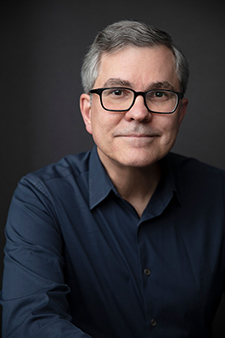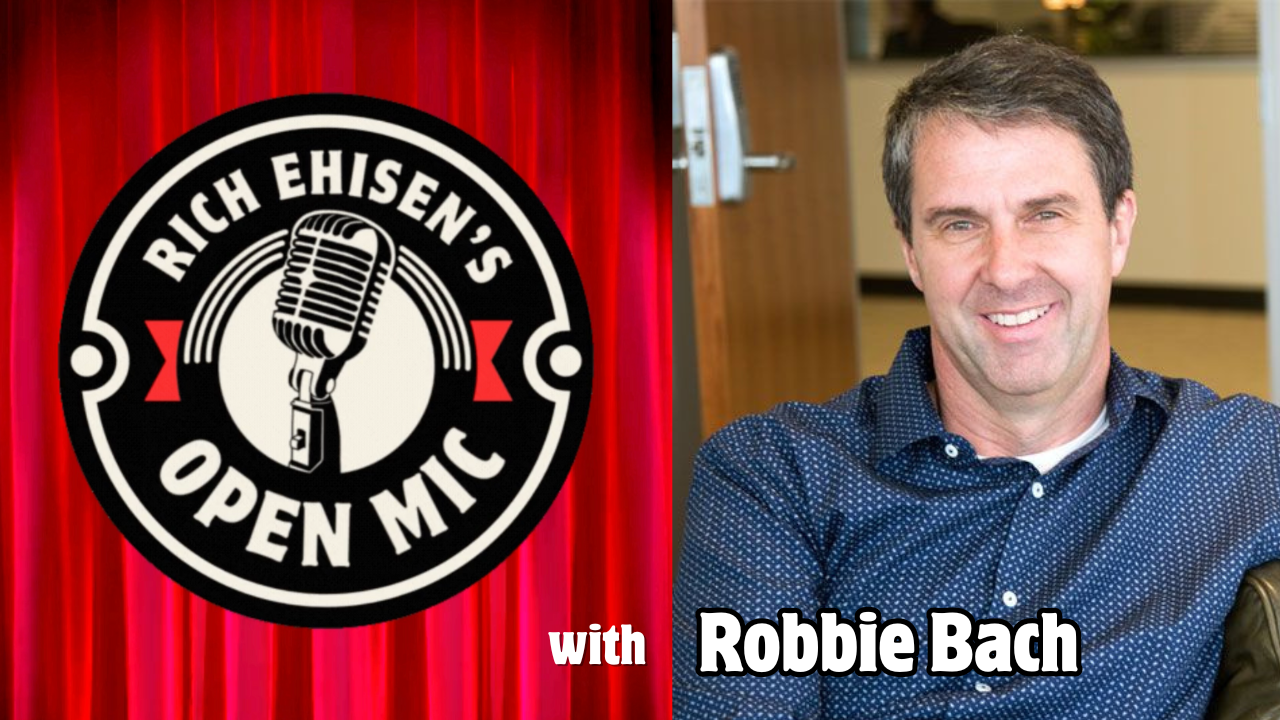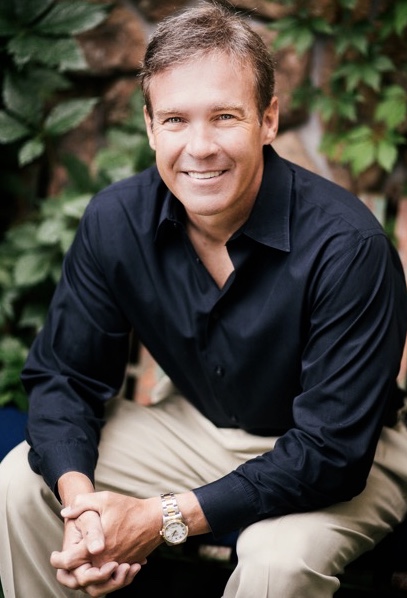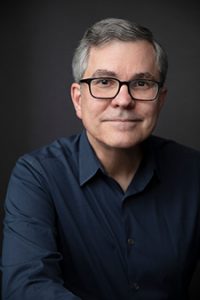 Aspiring writers have all at one time or another been told to “write what you know.” Well, there aren’t many people around who know more about cybersecurity and data privacy than thriller author Reece Hirsch, who co-heads the cybersecurity division of one of the world’s most notable law firms. Hirsch has authored six thrillers that draw on his vast experience in the world of data privacy, including his brand new release, “Dark Tomorrow,” which came out in May. We sat down recently to talk about that book, the tension between writing characters vs. plot and the most challenging thing he faces as a writer.
Aspiring writers have all at one time or another been told to “write what you know.” Well, there aren’t many people around who know more about cybersecurity and data privacy than thriller author Reece Hirsch, who co-heads the cybersecurity division of one of the world’s most notable law firms. Hirsch has authored six thrillers that draw on his vast experience in the world of data privacy, including his brand new release, “Dark Tomorrow,” which came out in May. We sat down recently to talk about that book, the tension between writing characters vs. plot and the most challenging thing he faces as a writer.
OM: Let’s start with the new book, “Dark Tomorrow.” It is the second in your latest series, correct?
Hirsch: That’s correct, Dark Tomorrow is my second book featuring FBI Special Agent and cybercrimes investigator Lisa Tanchik. In this book I explore the threat of cyber warfare. It begins with Lisa investigating a murder committed by a hacker using a particular kind of strobe attachment. At first it looks like an isolated crime, but it turns out it is the first step in a coordinated attack on the U.S. The victim is an analyst at U.S. Cyber Command, the agency that defends the U.S. against cyber threats. So Special Agent Tanchik gets pulled out of her normal environment at the FBI and works with Cyber Comm on this huge crisis, which takes down the entire East Coast.
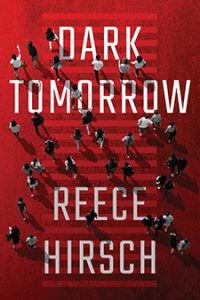 OM: The strobe attachment sounds scary. Is that a real thing?
OM: The strobe attachment sounds scary. Is that a real thing?
Hirsch: Yes, it is a real thing. The journalist Kurt Eichenwald was once victimized by a similar attachment. If you are induced to click on it, it activates a powerful strobe. If you have epilepsy it could produce a seizure, which in some cases can be fatal. It’s a very scary phenomenon that was first identified in the 1990s when there was an episode of an animated Pokémon show caused a bunch of children in Japan to have seizures.
OM: You’ve also written one other series, the Chris Bruen thrillers. Will we see more of those in the future?
Hirsch: There are three books in that series. Bruen is a former U.S. Department of Justice cybercrimes prosecutor who is now in private practice. His job is a little like what I do in real life as a privacy and cybersecurity attorney – but without the body count. I would enjoy going back to those characters, but right now I don’t have any plans to do that. In fact, my next book is likely to be a departure from the privacy and cybersecurity thrillers. It may be something that is a little more of a traditional murder mystery in some respects.
OM: Is there anything more you can tell us about that?
Hirsch: I don’t want to say too much because it is still very much a work in progress, but it is my version of a locked-room mystery. It takes place in a very confined, isolated setting. Of course, here in the COVID-19 era that could be very problematic so I think I am going to set this book in the very recent past right before the pandemic. (Laughs)
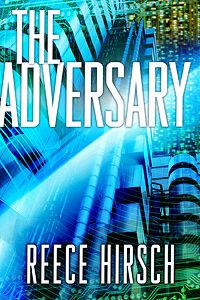 OM: You’re a lawyer by trade at one of the more prestigious firms in the world. You’re also one of the more highly sought after privacy and cybersecurity experts around. That’s a lot of demands on your time. How do you go about ensuring you have the time to write and to be creative?
OM: You’re a lawyer by trade at one of the more prestigious firms in the world. You’re also one of the more highly sought after privacy and cybersecurity experts around. That’s a lot of demands on your time. How do you go about ensuring you have the time to write and to be creative?
Hirsch: It’s not easy. I envy writers who have the time to crank through a book and write all day. I have to write in much smaller increments of time. But I think it’s important to carve out some dedicated time for writing. For me, that’s often early in the morning and on weekend mornings. But sometimes in spite of my best efforts, dealing with clients across multiple time zones doesn’t even allow for that.
OM: Thrillers tend to be more more plot-driven than character-driven, but that’s certainly not written in stone. What is your process like? Do you tend to start with plots over characters or vice versa? Some mix of the two?
Hirsch: Since I’ve written two series, I often will start with a character with an occupation that will lend itself to a number of stories and thriller plots. While there is no denying that plot is very essential to thrillers, I think that having strong characters to drive the story is very important too. I’ve read thrillers that are very frenetic and have nonstop action, but you just don’t care about it very much because you aren’t really invested in the characters. They have to go hand in hand, though you do have to deal with the reader’s expectation that a thriller will move along at a fairly rapid clip.
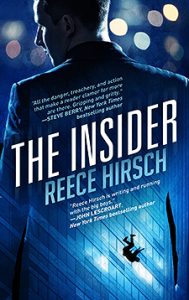 OM: We all draw on our personal experiences in our writing. How often do you craft characters after people you know from your work as a lawyer?
OM: We all draw on our personal experiences in our writing. How often do you craft characters after people you know from your work as a lawyer?
Hirsch: I think first books are usually autobiographical to one degree or another, even when they’re thrillers. My first book (The Insider) was about a young associate coming up toward partnership in a big San Francisco law firm, and I had lived that experience. It also deals a bit with law firm politics and the personalities you encounter in that world. So I was definitely drawing on some people I knew. Fortunately, by the time it got published I was at a different law firm so I was able to tell my new colleagues that any unscrupulous lawyer characters in that book were inspired by my former firm.
OM: Do you ever get colleagues or others asking if you based a character on them? And have you ever had to step back from a storyline or a character because it might actually be too close to someone you know?
Hirsch: I am definitely sensitive to that, but usually the situations I’m dealing with in my thrillers are pretty heightened so they’re not directly derived from my experiences. Though a lot of the scary privacy issues I run into in my practice definitely find their way into my stories. In my current book, much of what I write about cyber warfare is completely true and I just take it a few steps beyond where we’re currently at. There will inevitably be a full-scale cyberwarfare event. It is already happening every day to a lesser degree among nations. So I’m just extrapolating what would happen if our current technologies and cyberweapons were really deployed and flared up into a full-scale cyber conflict.
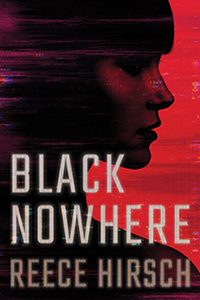 My previous book in the Lisa Tanchik series, “Black Nowhere,” was a little unusual for me because it is very closely modeled after real events. It is patterned after the rise and fall of the dark web marketplace Silk Road and Ross Ulbricht, the young man who founded that marketplace, and the law enforcement investigation that brought him down. There was one event from that story that was so incredible that I thought if I was just a novelist writing it the reader would never buy it, but since it did happen I did go ahead and write it into my book.
My previous book in the Lisa Tanchik series, “Black Nowhere,” was a little unusual for me because it is very closely modeled after real events. It is patterned after the rise and fall of the dark web marketplace Silk Road and Ross Ulbricht, the young man who founded that marketplace, and the law enforcement investigation that brought him down. There was one event from that story that was so incredible that I thought if I was just a novelist writing it the reader would never buy it, but since it did happen I did go ahead and write it into my book.
OM: One of the criticisms of thrillers is that female characters are often very two-dimensional. How do you approach to writing women?
Hirsch: I took my time getting to the point of writing a female protagonist, which I did with “Black Nowhere.” I also have a very pivotal female character in the Chris Bruen series, Zoey Doucet, a former hacker who runs the law firm’s computer forensic lab. As a male author, there are just so many ways you can do it badly, that I went into it with a lot of trepidation. I was very careful to make Lisa Tanchik a fully developed human being and not some genre trope. Some of the best compliments I’ve received from Goodreads and Amazon reviewers is when they say they thought the book had been written by a woman until they read the author bio at the end. The bottom line is that I’ve seen enough of the mistakes made that I’m trying very hard to not make them myself. I think writing well is just as much about practicing empathy in portraying other ways of viewing the world as it is about expressing your own view. I guess it’s up to the readers to judge whether I was successful, but so far I haven’t been getting that particular criticism.
OM: What is the most challenging thing for you as a writer?
Hirsch: I feel like I could always do better at delving into characters. Part of it is that in thrillers the genre demands a lot of forward momentum. But I try very hard to fight against that tide by taking the time and having the beats in the story where the characters get a little bit of room to breathe. I’d like to continue to work on that aspect of my writing going forward. I think I’m pretty good at pacing and plotting.
OM: Most writers go through years of frustration before they achieve any kind of success, be that getting an agent or a book in print. How was the process for you? Did it take you a long time to get from concept to publication on your first novel?
Hirsch: It was about a six-year journey. A lot of writers I know have a manuscript they throw into a drawer and start over on something new. They may go through a couple of manuscripts in the course of their apprenticeship learning their craft. For better or worse, I kept working on the same book, which became “The Insider.” I rewrote it from page one many times over, which was a painful process. But that was the path I followed, and that book eventually did get published. Of course when I had that first draft, I thought I was just going to be able to send it out, I would immediately land an agent, and it would set the world on fire. The reality was that my manuscript wasn’t ready and it took a number of rejections from agents for me to figure that out. Working in a couple of different writers’ groups over the years helped me recognize what I was doing wrong. I also had a few agents that rejected me, but who were kind enough to provide some feedback that pointed me in the right direction. I also hired a book doctor to give me a manuscript read, which was really constructive as well. I eventually landed an agent, and I was lucky enough to have my book acquired by a publisher pretty soon after that. But it was a long, plodding process to get to that point.
OM: What makes for a good writers’ group? What’s the most helpful aspect of being in a group?
Hirsch: You want people whose opinions you value, who don’t just tell you everything you do is great. You want to get constructive criticism because at any point in your writing career, but particularly early on, you are probably making some fundamental mistakes. You just want people who take the craft seriously and are really trying to help you get better. If you’re in a group where you are routinely rejecting the advice you’re getting, then it’s probably not going to be a very helpful situation for you.
 OM: I like to end on what I hope is a fun note. Let’s say I can put you together for a conversation with one of the following three people. Which one would you choose, and why? Your options are: Edward Snowden, Thomas Edison or Sandra Day O’Connor.
OM: I like to end on what I hope is a fun note. Let’s say I can put you together for a conversation with one of the following three people. Which one would you choose, and why? Your options are: Edward Snowden, Thomas Edison or Sandra Day O’Connor.
Hirsch: Those are all interesting people, but I would have to choose Edward Snowden for a very particular reason. I wrote Snowden into one of my thrillers, “Surveillance,” and I imagined what life like might be like for him in exile in Russia. I would be very curious to see what he thought about my portrayal if it somehow came to his attention. So definitely Edward Snowden.

